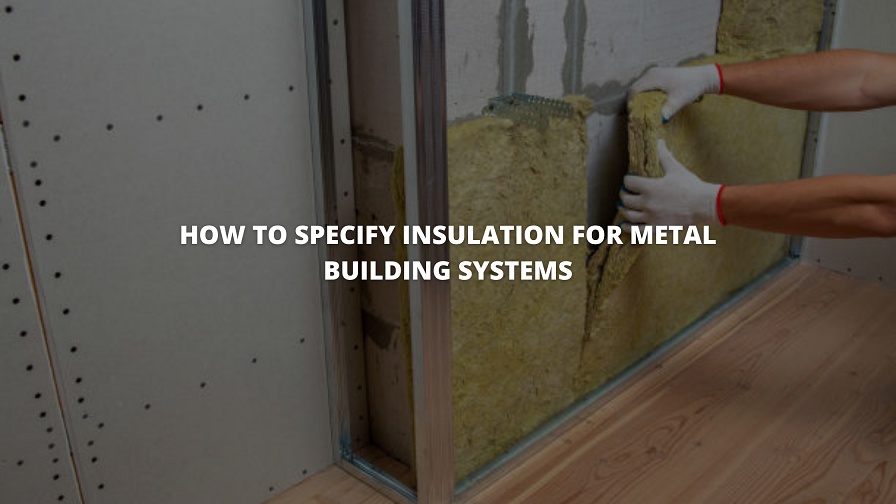Insulation is an essential component of any metal building system, providing thermal protection against heat, cold, and moisture. It helps to maintain a comfortable indoor environment while also reducing energy costs. Choosing the right insulation for your metal building system is critical to ensure optimal performance and energy efficiency. In this blog post, we will discuss how to specify insulation for metal building systems, including its benefits, types, and factors to consider.
Benefits of Insulation for Metal Building Systems
Insulation provides several benefits for metal building systems, including improved energy efficiency, reduced heating and cooling costs, increased comfort, and protection against moisture and condensation. Insulated metal building systems require less energy to heat and cool, which translates to lower energy bills and reduced environmental impact. Insulation also helps to reduce condensation and moisture buildup, preventing mold and mildew growth and prolonging the life of the building. Additionally, insulation helps to create a more comfortable indoor environment by reducing temperature fluctuations and noise levels.
Types of Insulation for Metal Building Systems
There are several types of insulation available for metal building systems, including batt, blown-in, spray foam, and rigid board insulation. Batt insulation is the most common type and is made of fiberglass or mineral wool. It comes in pre-cut panels that are designed to fit between the framing of the building. Blown-in insulation is made of loose fibers that are blown into the space between the framing. Spray foam insulation is applied as a liquid that expands and hardens into a foam. Rigid board insulation is made of rigid foam panels that are installed on the exterior of the building.
Factors to Consider When Specifying Insulation
When specifying insulation for a metal building system, it's important to consider several factors, including climate, building use, insulation thickness, R-value, and installation method. The climate plays a significant role in determining the appropriate insulation type, thickness, and R-value. The building's use and occupancy also impact the insulation selection. The insulation thickness and R-value should be selected based on the local building code requirements and climate. The installation method and the insulation's compatibility with other building components are also essential considerations.
Insulation Codes and Standards
Insulation codes and standards play a critical role in specifying insulation for metal building systems. The International Energy Conservation Code (IECC) sets minimum requirements for insulation based on climate zones, building types, and occupancy. The American Society of Heating, Refrigerating, and Air-Conditioning Engineers (ASHRAE) provides guidelines for energy-efficient building design and operation. The National Institute of Standards and Technology (NIST) provides recommendations for insulation materials and installation.
Insulation Manufacturer and Contractor Selection
Selecting the right insulation manufacturer and contractor is crucial to ensure that the insulation is installed correctly and provides optimal performance. When selecting an insulation manufacturer, it's essential to consider their experience, reputation, and product quality. The insulation contractor should be licensed, insured, and experienced in installing insulation for metal building systems. They should also provide references and warranties for their work.
Conclusion
In conclusion, specifying insulation for a metal building system requires careful consideration of several factors, including climate, building use, insulation thickness, R-value, and installation method. It's essential to comply with insulation codes and standards and work with experienced insulation manufacturers and metal building contractors to ensure optimal performance and energy efficiency. By choosing the right insulation for your metal building system, you can create a comfortable indoor environment, reduce energy costs, and prolong the life of your building.


No comments yet